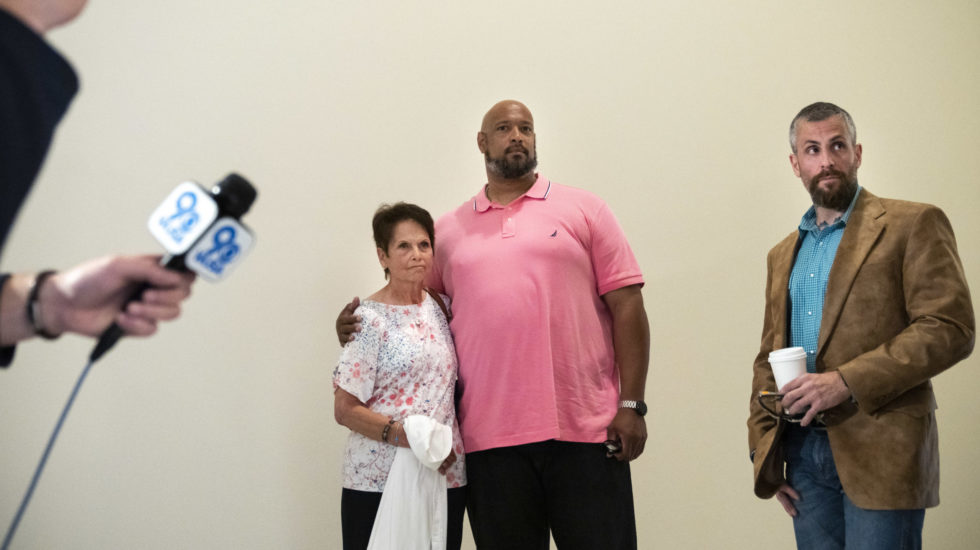When asked by reporters on Thursday why she made the visit to the Capitol, Gladys Sicknick’s answer was brief and to the point. “I just couldn’t stay quiet anymore,” she said.
Sicknick went to the Capitol to meet with Republican senators to implore them to support a bipartisan commission to investigate the Jan. 6 attack on the Capitol. She was joined by Sandra Garza, who was her son’s longtime partner, and two police officers who also faced the violent crowd that day, Capitol Officer Harry Dunn and Metropolitan Police Officer Michael Fanone. The group visited several Republican Senate offices to make their voices heard ahead of a vote on the legislation, which could potentially happen late Thursday afternoon. As it stands now, only three GOP senators, Mitt Romney, Lisa Murkowski and Susan Collins have said they would vote for the bill. That leaves the legislation seven votes shy of the 60-vote threshold needed to bypass the Senate filibuster rule.
Her son, Capitol Police Officer Brian Sicknick, died the day following the insurrection after suffering two strokes. Washington D.C.’s chief medical examiner ruled last month that Sicknick had died of natural causes. But there is no doubt Sicknick, along with about 140 other officers, were injured when they fell under attack by the mob that stormed the Capitol that day.
Mrs. Sicknick’s visit to Capitol Hill earned her praise from many people who wished others would follow her lead and push Republican senators to explain their hesitation at backing a bipartisan investigation into the insurrection.
My heart goes out to #GladysSicknick for the loss of her son….at the same time, I applaud her for standing up and speaking out. More people need to speak out like
— Aviva Hadara (@AvivaHadara) May 27, 2021
Mrs Sicknick has done…they need to speak out and keep speaking out. Do not let anyone forget.
Sen. Ron Johnson of Wisconsin met with Mrs. Sicknick. Johnson, who had previously said after Jan. 6 that the events that day were “mostly peaceful,” said the two discussed the other ongoing investigations. “Although we respectfully disagreed on the added value of the proposed commission, I did commit to doing everything I could to ensure all their questions will be answered,” Johnson told NBC News.
While Mrs. Sicknick met with some Republican legislators, Senate Minority Leader Mitch McConnell was busy trying to ensure his colleagues toed the party line and vote down the bill, which was created in bipartisan fashion and includes nearly all the demands made by the Republican side.
West Virginia Senator Joe Manchin, the most outspoken supporter of maintaining the Senate tradition of the filibuster, issued his strongest words yet against his Republican colleagues, saying there is no good reason to oppose the creation of a Jan. 6 commission.
Despite that, Manchin later said he’s unlikely to change his mind on eliminating the filibuster, clinging to hope that Republicans will come around.



